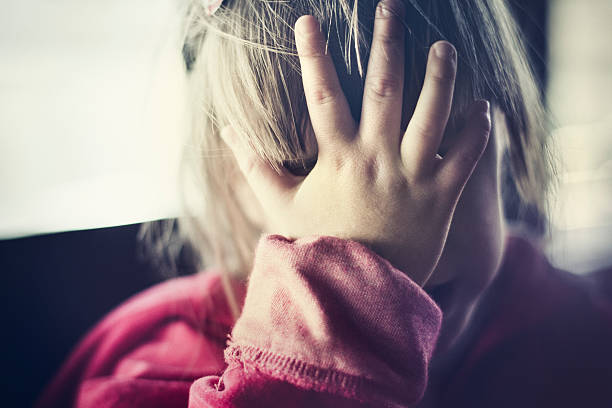Hotline: +381 61 63 84 071
Mapping sheltering services for victims of trafficking in the Western Balkans: Reality check and a call for action

Mapping sheltering services for victims of trafficking in the Western Balkans: Reality check and a call for action
Photo: Istockphoto
Across the Western Balkans, survivors of human trafficking are still struggling to find the protection, stability, and support they deserve. Despite existing laws and referral mechanisms, shelters remain chronically underfunded, overstretched, and sustained almost entirely through the commitment and resilience of civil society organizations. These are the key findings of a regional mapping report developed under the project “Safe Haven: Expanding Shelter Resources for Trafficking Survivors in the Western Balkans”, coordinated by World Vision International in partnership with Atina (Serbia), Lara Foundation (BiH), Mary Ward Loreto (Albania), and Open Gate/La Strada (North Macedonia), with the support of the U.S. Department of State, Office to monitor and combat trafficking in persons.
The analysis, authored by Ivana Radović, covered Albania, Bosnia and Herzegovina, Montenegro, North Macedonia, and Serbia, providing the first comprehensive overview of sheltering systems in the region between 2022 and 2024. It combined desk research, 28 interviews with key service providers and officials, and insights from 11 trafficking survivors who had lived in shelters. Their experiences of safety, recovery, isolation, and systemic neglect became the emotional and moral foundation of this study.
A region with services on paper, but not in practice
The report paints a sobering picture: all five countries have established national referral mechanisms and strategies to combat trafficking, yet sheltering and reintegration systems remain fragmented and fragile. The Western Balkans continues to be both a source and a destination for victims of trafficking, with women and girls subjected to sexual exploitation, children to forced begging and marriages, and men increasingly exploited through labor and servitude.
Sheltering is recognized as a core human right under the Palermo Protocol and the Council of Europe Convention on Action against Trafficking in Human Beings. In reality, however, this right is far from guaranteed. Specialized accommodation exists in every country, but with limited capacity and serious service gaps, especially for children, men, migrants, and people with complex needs.
In Serbia, for example, the only country in the region that does not finance licensed social services provided by NGOs Atina and Astra, these services are partially state-funded in Bosnia, Albania, and North Macedonia. For 22 years, this situation has left NGOs in Serbia in a state of constant exhaustion and has prevented further program development. Across the region, NGO-run shelters remain the backbone of protection systems. Yet, they operate on short-term donor funding without permanent budget lines, leaving staff and beneficiaries in a constant state of uncertainty.
Key regional findings
The report highlights several critical issues that cut across all five countries:
- Funding instability: State financing is partial, retroactive, or politically dependent. No government guarantees full annual budgets for shelters or reintegration programs.
- Licensing without security: Although most countries have formal licensing systems, they often bring administrative burdens rather than stability. Serbia, uniquely, licenses NGO-run shelters without offering them public funding.
- Gaps in reintegration: Victims often leave shelters without long-term housing, employment, or mental-health support, leaving them at risk of re-trafficking.
- Overreliance on NGOs: Non-governmental organizations are providing critical life-saving support, often stepping in where state systems fail. Their professionalism and dedication ensure continuity, but the absence of systemic state funding undermines sustainability.
- Limited services for children and men: While nearly half of all identified victims are children, only a handful of child-specific shelters exist. Men and boys are often excluded entirely from assistance systems.
The voices of survivors
Survivors who participated in the research described shelters as safe spaces where dignity and respect replaced fear and exploitation. Still, they also voiced frustration about restricted movement, limited reintegration options, and the lack of survivor participation in shaping programs and policies.
Their message is clear: real recovery starts only when victims are given freedom, stability, and a future, not just temporary safety.
Atina’s perspective: From protection to sustainability
For over two decades, Atina has been advocating for comprehensive and trauma-informed support to women and girls who have survived trafficking and violence. This research reinforces what Atina has been witnessing daily: support services exist, but they are not sustainable. Licensing alone is not enough; funding stability, political will, and survivor participation are essential for meaningful recovery.
The findings call for concrete policy shifts:
- Establish multi-year, predictable public funding for shelters and reintegration programs.
- Expand services for men, boys, and children.
- Develop structured reintegration pathways that include housing, vocational training, and employment support.
- Integrate staff wellbeing and supervision into funding frameworks.
- Involve survivors as active partners in shaping and evaluating services.
A call to governments and donors
The report’s conclusion is both urgent and hopeful: the Western Balkans already has the expertise and infrastructure needed to build an effective, survivor-centered response. What is missing is political commitment and sustained investment.
Sheltering is not charity; it is a legal obligation and a moral test of whether states truly stand by their most vulnerable citizens. NGOs like Atina have carried this responsibility for too long on unstable foundations. Now is the time for governments to step up, secure long-term funding, and ensure that every victim of trafficking in the Western Balkans has access not only to shelter, but also to recovery, dignity, and independence.
Read the full report: “Sheltering services for victims of trafficking in the Western Balkans - A mapping report” Prepared under the Safe Haven project implemented by World Vision International and partners, with the support of the U.S. Department of State, Office to Monitor and Combat Trafficking in Persons.
The report can be found below.












 FACEBOOK
FACEBOOK TWITTER
TWITTER YOUTUBE
YOUTUBE